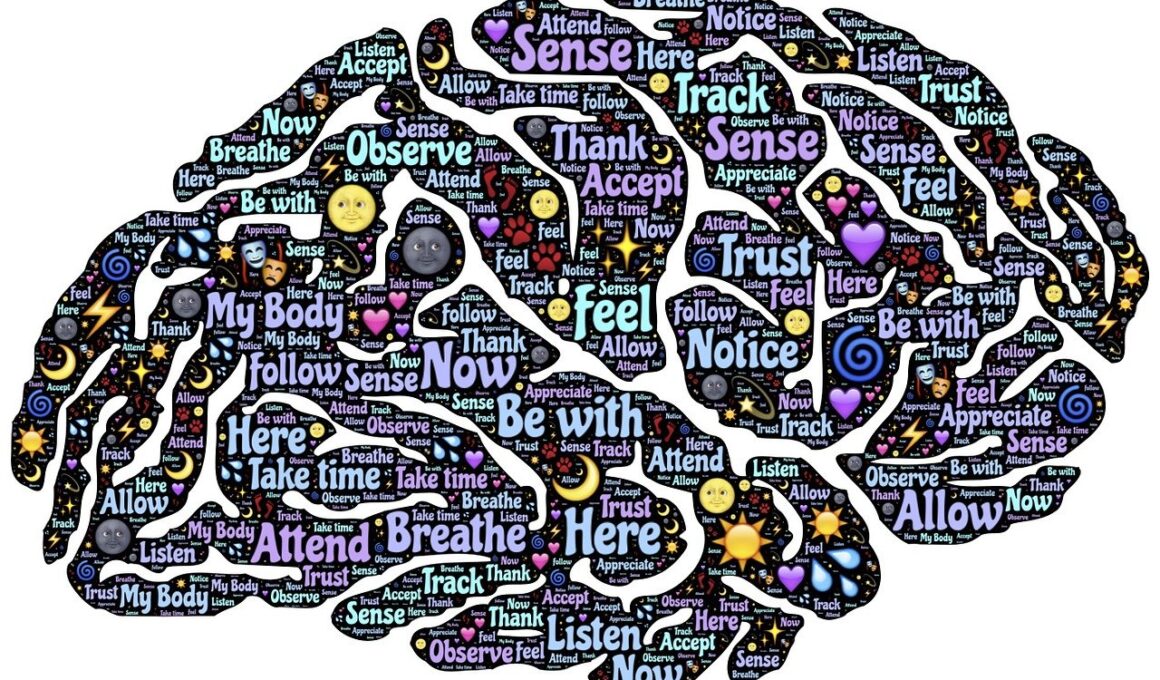Adaptive Sports and Physical Activities to Boost Mental Health in Chronic Patients
Chronic diseases affect not only physical health but also mental wellness. Adaptive sports and physical activities offer unique opportunities for those suffering from chronic illnesses to improve both aspects of health. These sports are specifically designed to accommodate the needs of individuals with chronic conditions such as arthritis, heart disease, or diabetes. Engaging in regular physical activity can lead to reduced symptoms of depression and anxiety. This happens through mechanisms like the release of endorphins during exercise, which can produce feelings of happiness and satisfaction. Adaptive sports programs cater to various abilities, ensuring inclusiveness and motivation. Moreover, participating in a community or team environment can foster friendships and social networks, combating feelings of isolation common among patients. Various organizations are now offering adaptive sports opportunities across the country. Patients are encouraged to explore options available locally, including team sports, individual activities, or even hybrid approaches that blend both. By choosing to be active physically, patients affirm their resilience and ability to cope better with the challenges posed by their chronic conditions. This journey towards wellness is achievable through commitment and support from peers.
One effective form of adaptive sports is wheelchair basketball, providing an exciting way for patients to gain fitness and improve mental health. This sport enhances physical coordination, strength, and cardiovascular fitness. Mental wellness benefits also stem from competitive play, which can instill a sense of achievement and camaraderie. Training sessions for wheelchair basketball focus on skill development while catering to each participant’s ability level. Facilitators empower patients to push their limits and redefine what they can achieve physically. Similarly, adaptive swimming programs are gaining popularity, as water allows for low-impact movement suitable for many chronic conditions. Swimming promotes relaxation, lowering stress levels significantly. Increased heart rate during swimming contributes to improved endurance and reduces anxiety, enhancing overall mental health. Moreover, adaptive yoga offers a holistic approach, where the emphasis on mindfulness can further aid in mental wellness. Practicing yoga encourages relaxation and decreases the stress hormone cortisol, enabling chronic patients to manage pain more effectively. Each of these adaptive activities provides tangible benefits, helping individuals not merely survive but thrive while navigating life with chronic conditions. Patients are urged to discover the adaptive sport or activity that resonates with their interests and needs.
The Importance of Community Engagement
Engaging in adaptive sports also highlights the critical role of community support in mental wellness. Community equals connection; individuals participating in activities can forge friendships that enhance motivation and accountability. Being part of a team or group can help patients feel less alone in their struggles and more empowered to engage in life’s challenges. Local adaptive sports clubs often encourage new members to participate in a relaxed, welcoming atmosphere. Such social interactions can have significant positive effects on mental health, reducing feelings of isolation and increasing happiness levels. Further, these clubs often provide access to expert coaches and therapists who can guide individuals in their physical pursuits. This professional support not only enhances participants’ skills but also equips them with techniques to navigate their chronic conditions. Additionally, community activities often include various events like group fundraisers, encouraging active participation. These events can foster a shared sense of purpose and accomplishment among members, helping to reinforce mental resilience. Engaging in community-based adaptive sports initiatives fulfills a dual role in recreation and emotional well-being, guiding participants toward stronger mindsets and better overall health.
Moreover, other forms of adaptive activities also play a crucial role in enhancing patient mental health. For instance, guided nature walks, tailored for individuals with chronic illnesses, provide opportunities for physical activity amidst beautiful natural surroundings. Nature has been proven to elevate mood and decrease stress, making it an ideal setting for wellness activities. These walks encourage social interaction while promoting physical fitness, allowing participants to enjoy the therapeutic effects of being outdoors. Another popular adaptative activity is dance therapy, which combines movement with emotional expression. In a supportive environment, participants can explore new movements while rediscovering joy in their bodies. Dance therapy improves coordination, flexibility, and overall mental health, offering an engaging form of fitness. Adaptive martial arts programs, such as Tai Chi or adaptive karate, enable patients to develop focus, self-discipline, and confidence. These arts build strength and balance, benefiting those with chronic conditions. The mental aspects, like mindfulness and stress reduction, are equally important. As a bonus, the confidence gained through martial arts practice can translate positively into other areas of life. Exploring these diverse activities helps patients find the best fit to grow physically and mentally.
Setting Goals for Better Outcomes
Setting realistic and achievable goals is essential for chronic patients engaging in adaptive sports and physical activities. Goals provide direction and motivation, allowing participants to track their progress and celebrate milestones along their journey. These goals can range from basic achievements, such as attending a certain number of sessions per month, to more ambitious ones like completing a local race or sports event. The SMART framework—Specific, Measurable, Achievable, Relevant, and Time-bound—can guide patients in establishing their objectives. An example could be aiming to swim for fifteen minutes without stopping, gradually increasing the time as fitness improves. Recognizing small victories fosters positive reinforcement, contributing significantly to mental well-being. Support from coaches, therapists, and peers can help patients stay accountable to their goals, further promoting resilience. Group exercises create a shared environment where patients can witness each other’s progress, ensuring motivation remains high. Following a structured program tailored for individual needs guarantees a sense of achievement while focusing on physical health. In doing so, participants can experience augmented mental well-being and enjoy the therapeutic benefits of adaptive sports in an environment that nurtures growth.
As patients begin to engage in adaptive sports and activities, maintaining a balance in their lifestyle is critical. Incorporating physical activity should complement ongoing medical treatment and management of their chronic condition. It’s essential to consult with healthcare professionals when beginning any new fitness regimen, ensuring activities align with medical advice. This collaborative approach enables a focus on both physical and mental health. Individuals may need to modify sports or exercises according to their health status and capabilities. However, with proper guidance, patients can discover appropriate activities that fulfill their needs and encourage enough physical exertion. Moreover, participating in adaptive sports can serve as a tool for improving overall quality of life. Research supports findings that increased physical activity regularly correlates with enhanced mood, reduced anxiety, and improved cognitive function. Additionally, the neuroplastic effects of physical activity can lead to changes in mindset and perceptions surrounding chronic illness. By integrating fitness practices into daily routines, patients can redefining their relationship with health. Emphasizing a proactive approach to managing chronic conditions combined with the advantages of adaptive sports offers a promising pathway to greater fulfillment and mental well-being.
Conclusion
In conclusion, adaptive sports and physical activities present invaluable opportunities for chronic patients to improve both their mental and physical well-being. These engaging pursuits allow individuals to embrace their diagnosis while reclaiming their sense of identity and purpose in life. The multifaceted benefits of participation transcend physical health alone, impacting mental wellness positively. As patients learn to set achievable goals, create social connections, and incorporate activities into their routines, they enhance their outlook on living with chronic disease. Sports like wheelchair basketball, adaptive swimming, and yoga contribute to a holistic wellness approach, merging fitness with mental resilience. Community connections foster the essential support network necessary for sustained engagement in physical activities. As chronic patients embark on their own journeys, personalized adaptive sports can serve as unique catalysts for transformation. Enhance your own quality of life through adaptive sports, marrying your physical capabilities with mental health empowerment. Discover local opportunities that resonate with your interests, and allow yourself to explore the world of adaptive sports. By prioritizing both fitness and mental health, chronic patients can build healthier, more fulfilling lives.
This closing thought highlights adopting adaptive sports is not merely about physical health but a journey toward embracing life fully amid chronic challenges. Engaging in these activities opens doors to self-discovery and empowerment, showcasing strength beyond illness. Each small step—be it participating in a class or joining local competitions—works toward a larger goal, enhancing overall well-being and happiness. Visit Adaptive Sports for resources and information on programs available in your area. Always remember that every individual is unique; finding the right fit in adaptive sports is essential. Take the time to explore different options and discover what activities excite you. By prioritizing mental health alongside physical activity, you not only improve your quality of life but also build the resilience to face challenges head-on. This holistic approach can truly transform lives, making living with chronic disease not merely a struggle but an opportunity for personal growth and deeper connections. Celebrate every achievement, no matter how small, and establish a mindset centered around positivity and progress. Embrace the journey ahead, and recognize that the potential for wellness lies within you.


